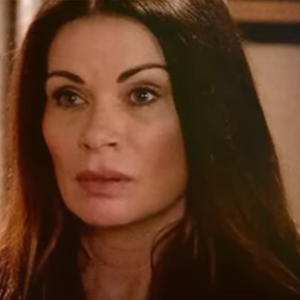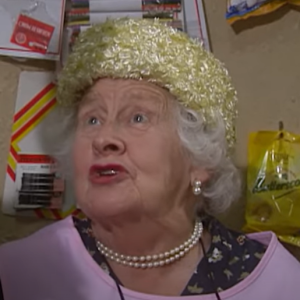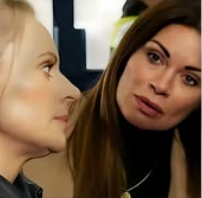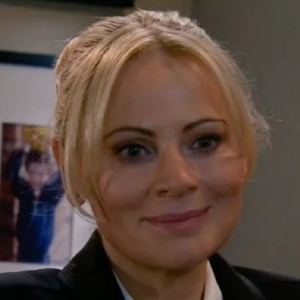Corrie week of twists: two funerals, a coercive edge, and a proposal that could reshape Weatherfield’s loyalties
Two funerals, one street-wide breath held in suspense, and a week in which every gesture feels loaded with consequence. Coronation Street this week braids grief, desire, and power into a taut tapestry that keeps the audience guessing not with loud shocks but with the patient, aching pull of intimate decisions under public gaze. The cobbles hum with a suggestive electricity: a mediation turning violent in its aftermath, a garden proposal that slides from romance to risk the moment the moment matters most, and a new name stepping into the beastro like a spark in a dry room. The overarching drama is a study in control—who wields it, who curbs it, and how fragile the line is between care and coercion when money, emotion, and reputation collide. In Weatherfield, even the most ordinary acts—share a tea, walk into a room, raise a toast—carry the weight of potential ruin or renewal. This is not just a sequence of events; it is a delicate demolition of trust and a stubborn search for authentic connection amid a chorus of competing motives.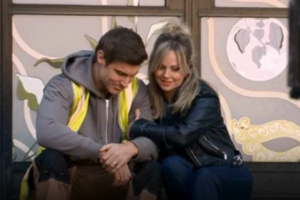
George Shuttleworth stands at the center of the maelstrom, his professional calm clashing with the tremor of desire that threads through Jenny and Christina, two women who both need him and threaten to pull him in opposite directions. Jenny’s posture—guarded, observant, and quick to interpret—reads Christina’s warmth as augmentation of risk. Christina’s glittering charm lands where George’s politeness leaves him exposed, and she glides through conversations with the ease of someone who knows the value of a well-timed smile. The tension is never shouted; it is felt in the space between lines, in the small choices that could tilt a funeral service toward tragedy or tenderness. The moment when Jenny lifts the coffin lid and Dom’s absence becomes a cruelly undeniable presence is a masterstroke of dramatic gravity: certainty, sharpened by grief, fractures in an instant, and a room collapses into a chorus of silences that say more than any accusation could. The scene is a reminder that in Corrie, a single object—a lid, a gaze, a refusal—can rewrite a relationship in real time. In this week of strings pulled taut, George’s kindness becomes a magnet, drawing people toward him—some for solace, some for advantage—but the real question is whether those drawn close are drawn for the right reasons, or simply for the easy warmth of someone who seems to understand what it is to suffer.
The narrative around the two funerals deepens with Asha’s moral reckoning. After a shift that shook her faith in protection and justice, she chooses to attend the boy’s funeral, carrying a burden that feels almost too heavy for one person to bear. Her presence is a defiant act of witness, a quiet protest against the cruelty that life has allowed to intrude upon a family’s grief. The drama here is not spectacle but insistence: bearing witness can mend, or it can reopen the wound with an insistence on accountability that refuses to fade. The contrast between Asha’s quiet resolve and the spectacle of Christina’s and Jenny’s competing attentions to George adds a jarring texture to the week. It’s a reminder that the aftermath of tragedy in Weatherfield is rarely linear; it requires a reweaving of loyalties, a reckoning with past mistakes, and a willingness to accept that healing might come at the expense of personal safety or social standing.
The tech-edge of the week—the card machine that refuses to lie—serves as a tangible symbol of trust under pressure. In a world where appearances can mislead and secrets travel faster than truth, a declined payment becomes a catalyst for vulnerability and truth-telling. The moment is not merely about money; it is about the risk of being seen for who you really are when your motives are tested in front of others. Christina’s tears, whether genuine or strategic, are a reminder that performance can masquerade as emotion, and that in a town built on the theatre of everyday life, every tear can be both a confession and a weapon. The financial minor crisis spirals into a larger question about whether Christina’s interest in George is rooted in genuine feeling or in a calculated bid to secure a place in a life that looks as if it’s finally ready to lean toward something more lasting. The audience is invited to weigh the evidence with Jenny—whose heart holds a mix of care and caution—and decide whether loyalty can survive when the ground keeps shifting beneath their feet.
As the week progresses, the beastro becomes a stage for a different kind of drama: the unspoken, coercive undertones that can poison a relationship even as warmth and laughter attempt to salvage it. Theo’s threat-laced
